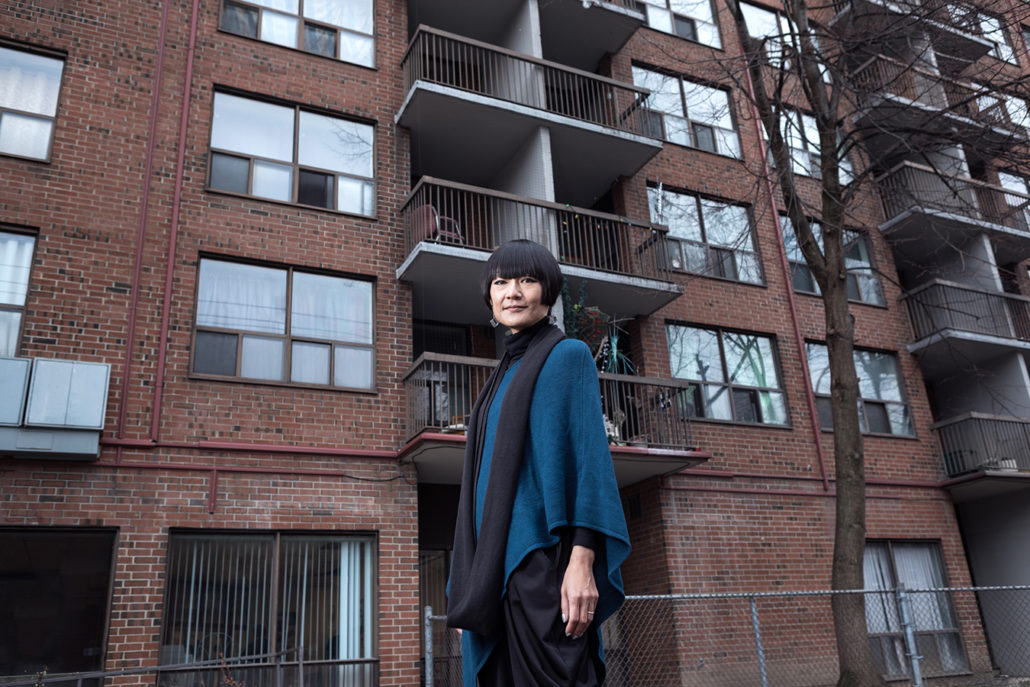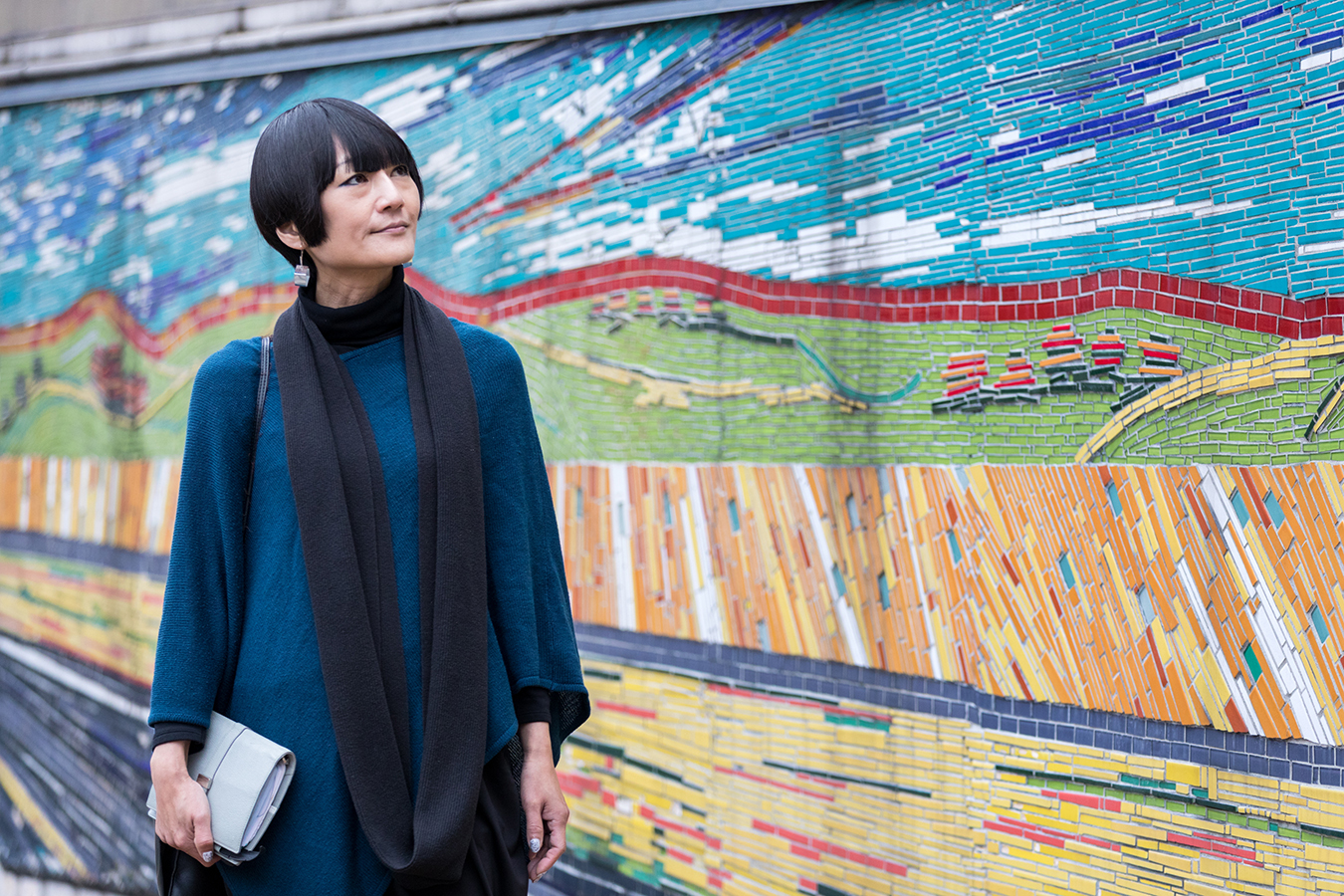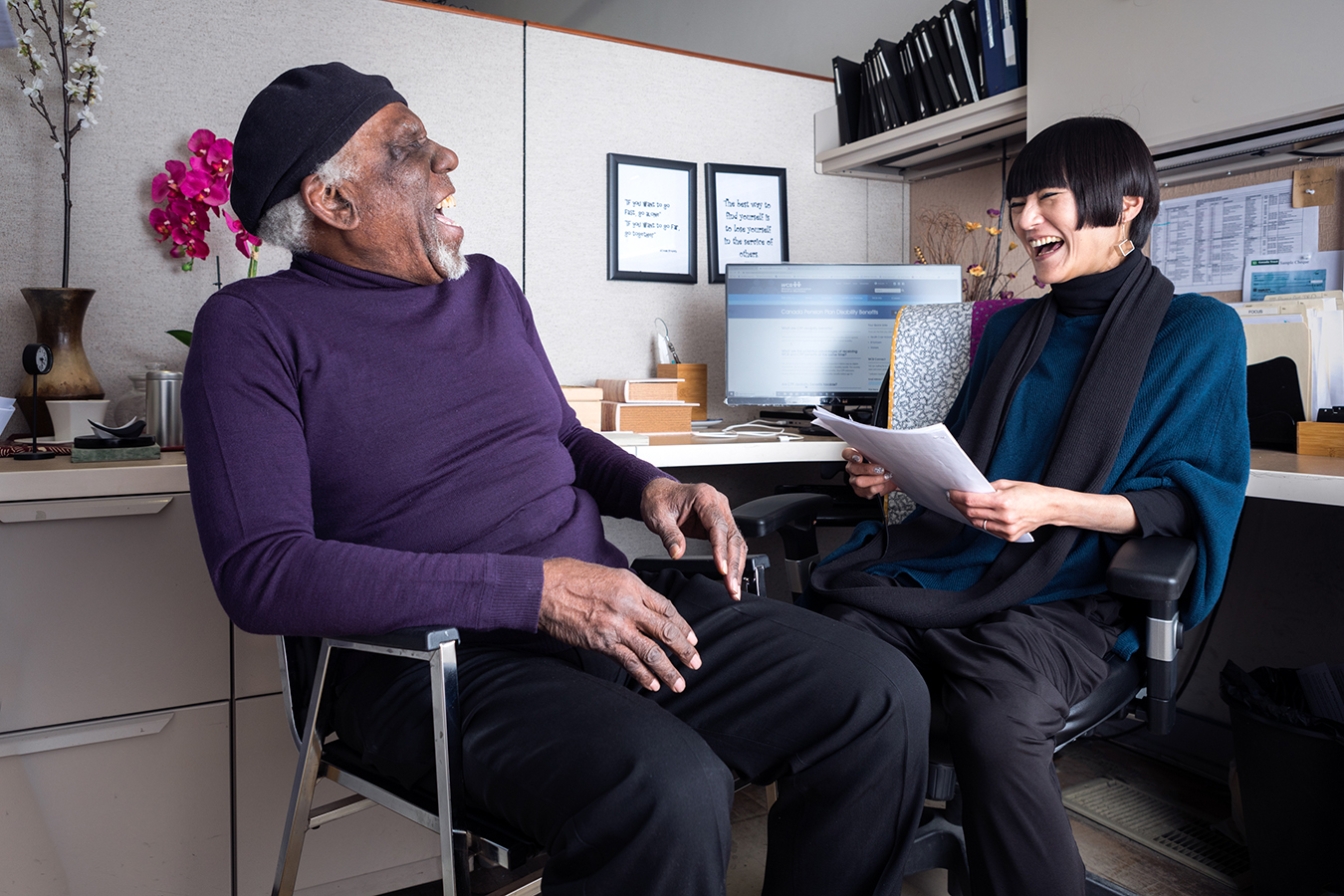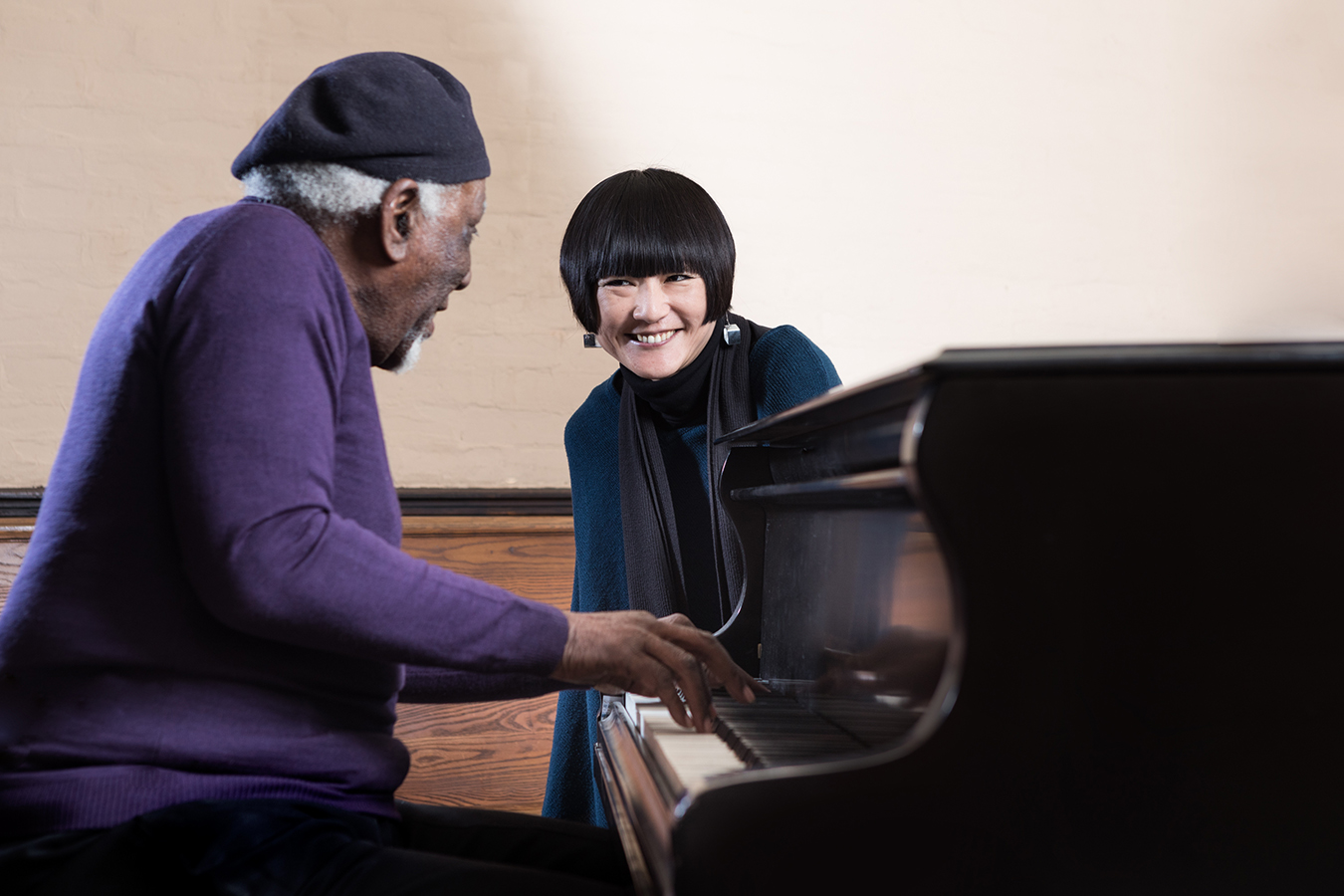
The GTA’s housing crisis means keeping seniors off the streets is no small feat—just ask Aiko Ito
At United Way Greater Toronto we want to recognize—and celebrate—the unsung heroes whose empathy, compassion and desire to make a difference might otherwise go unnoticed. Here’s the inspiring story of Aiko Ito, a client intervention worker at United Way agency Dixon Hall Neighbourhood Services who is helping seniors stay housed.
She’s our hero because: Ito advocates for Toronto seniors who face housing instability. She primarily helps seniors with low incomes who have physical or cognitive disabilities or mental health and addiction issues—and leads them out of a crisis in their current housing situation.

It’s tireless work: With soaring rents and long wait lists for affordable housing in Toronto, Ito is rarely able to find new and suitable accommodations for the seniors she works with. Instead, she tries to find a workable solution at her clients’ current places of residence. Whether the issue is accessibility, rent hikes, conflict with neighbours or threat of eviction, Ito’s goal remains the same: “To help people live safely, both emotionally and physically.”
How she does it: Ito knocks on a lot of doors. In some cases, she asks landlords to put in automatic door openers and ramps. “Sometimes it’s as simple as asking them to change doorknobs for tenants with arthritis,” she says. When her clients with mental health or addiction issues have disrupted the lives of their neighbours and pushed landlords to a breaking point, she initiates discussions with the offended parties, and helps to mediate. For clients experiencing cognitive decline, Ito will assist them in navigating the complexities of the long-term care process. “I come into their lives as a professional,” she says. “But I’m not there to dictate. I’m there to observe where they’re at and to introduce services at their own pace. If I promise something, I do it—and little by little, I build trust with my clients and their communities.”

Getting creative: Ito’s care conferences are unique. “When you think about care conferences, you think about professionals sitting around a table,” she says. “Mine often take place in a rooming house and everyone’s standing because no one wants to sit on the furniture—they’re afraid of bed bugs. There will be family members, neighbours, lawyers and health-care workers—anyone who knows, understands and cares about what’s going on in my client’s life.”
The good days: In one case, a landlord reached out to Ito after evicting an older Japanese man who wasn’t paying his rent, hoping that Ito (who speaks Japanese) could find him—and help him. Ito was able to locate him in a shelter and discovered that he had Alzheimer’s and didn’t realize his rent cheques had been bouncing. She helped get him a spot in a group home and got his name on a list for long-term care.
And the bad: One of Ito’s most tragic cases involved a client who was on disability support and waiting for government housing. In the meantime, he was living in the basement of a rooming house. After a series of strokes, he was unable to climb the 20 stairs that led to the outside of the building. He ended up bedbound—and he died. “Only a month later, I got a call and he finally had an offer from social housing,” Ito says.

What inspired her to take this path: Ito was born in Japan, earned a degree in sociology, and moved to Canada in 1998 as a 23-year-old newlywed. “What I experienced with the difficult immigration process made me curious and left me with a lot of questions about how the system works.” Ito enrolled in Seneca College’s Social Service Worker Immigrants and Refugees program and spent time working in shelters, where she realized that “there are certain populations who aren’t well served in the housing system, including women, immigrants and seniors.” She then earned her bachelor’s and master’s degrees in social work at York University—all while raising two young children. “I’d be doing a research interview, talking about trauma and my daughters would be there in the room,” she says. “I’d give them popcorn to keep them occupied.”
What keeps her motivated: “I like community social work; I can reach out to people where they’re at and I can see their environment. I’m always thankful when people allow me into their homes, their personal space. But I’m scared that more seniors are going to end up homeless. I want to raise awareness about this unique part of Toronto’s housing crisis.”

Living empathetically: Earlier in the year, Ito—whose children are now 17 and 14—decided to declutter their family home, calling in junk removers, donating items and arranging pick-ups, just as she does for her clients. “But when it was all gone, I felt so much loss,” she says. “I thought, ‘What did I do?’ I was surprised I felt that way because, growing up, I moved every two years, leaving stuff behind. And I picked up and moved to Canada. But this was my first experience with feeling what it will be like when I’m left alone. I couldn’t help thinking about my clients. Everything comes back to my work.”